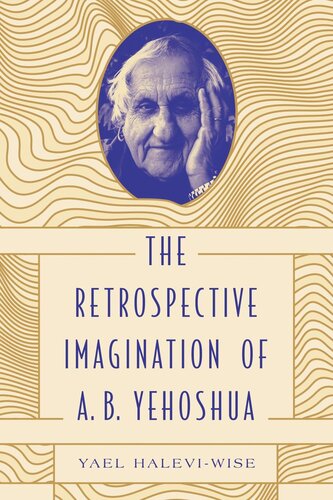

Most ebook files are in PDF format, so you can easily read them using various software such as Foxit Reader or directly on the Google Chrome browser.
Some ebook files are released by publishers in other formats such as .awz, .mobi, .epub, .fb2, etc. You may need to install specific software to read these formats on mobile/PC, such as Calibre.
Please read the tutorial at this link: https://ebookbell.com/faq
We offer FREE conversion to the popular formats you request; however, this may take some time. Therefore, right after payment, please email us, and we will try to provide the service as quickly as possible.
For some exceptional file formats or broken links (if any), please refrain from opening any disputes. Instead, email us first, and we will try to assist within a maximum of 6 hours.
EbookBell Team

4.1
50 reviewsOnce referred to by the New York Times as the “Israeli Faulkner,” A. B. Yehoshua’s fiction invites an assessment of Israel’s Jewish inheritance and the moral and political options that the country currently faces in the Middle East. The Retrospective Imagination of A. B. Yehoshua is an insightful overview of the fiction, nonfiction, and hundreds of critical responses to the work of Israel’s leading novelist.
Instead of an exhaustive chronological-biographical account of Yehoshua’s artistic growth, Yael Halevi-Wise calls for a systematic appreciation of the author’s major themes and compositional patterns. Specifically, she argues for reading Yehoshua’s novels as reflections on the “condition of Israel,” constructed multifocally to engage four intersecting levels of signification: psychological, sociological, historical, and historiosophic. Each of the book’s seven chapters employs a different interpretive method to showcase how Yehoshua’s constructions of character psychology, social relations, national history, and historiosophic allusions to traditional Jewish symbols manifest themselves across his novels. The book ends with a playful dialogue in the style of Yehoshua’s masterpiece, Mr. Mani, that interrogates his definition of Jewish identity.
Masterfully written, with full control of all the relevant materials, Halevi-Wise’s assessment of Yehoshua will appeal to students and scholars of modern Jewish literature and Jewish studies.